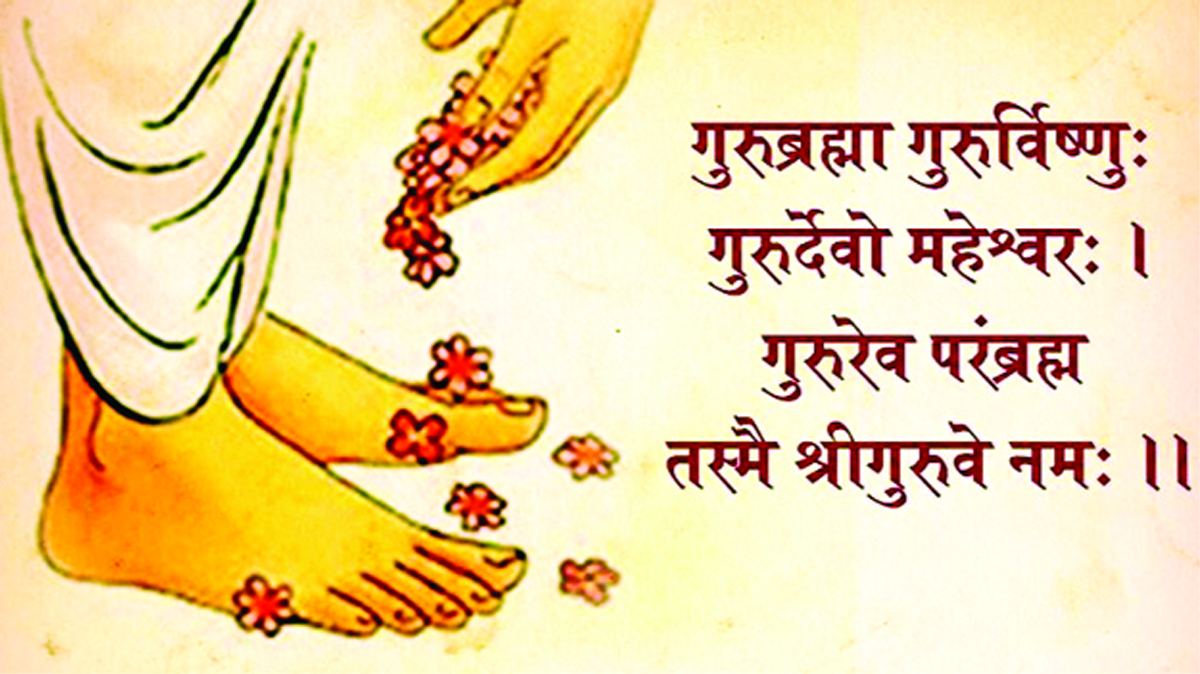Sri Sri Ravi Shankar
Guru Purnima is a day for reflection on our credit and debit. A day to be grateful for all that we have achieved in the past and making resolutions about all that we want to do in the coming years. It is a day to be thankful for all the blessings and knowledge received and to see how this knowledge has transformed our life.
Everyone has a little bit of guru-hood in them. Like fatherhood and motherhood, there is guru-hood. Consciously or unconsciously you are all guru to somebody. You give advice and guide people and give them love and care. When you do this 100%, without expecting anything in return: that is living the guru principle. The relationship between seeker, guru and the Divine is like the beginning, middle and end of a same line. It is the seed, the plant and the tree.Our body has billions of cells. Each cell has its own life. Many cells are born and are dying each moment. The way there are so many planets moving around the sun, there are many cells moving around within you. You are managing an entire township inside your body. It is like a bee hive. There are so many bees that sit in a beehive but there is only one queen bee. If that queen bee goes away, every other bee, they all disappear, the entire bee hive disappears. In the same way, in our body, there is an atom, tiniest of tiny atom, the atma which is everywhere yet nowhere. That is the queen bee – that is what you are, what the divine is and what the guru principle is. There is no difference between the divine, the Self and the guru. They are all one – the queen bee.
The Master is the embodiment of wisdom and the student represents a spiritual seeker eager to come closer to wisdom. In Sanskrit, Upanishad means sitting close to the Master, not just physically, but also mentally. It signifies the finite getting close to the infinite, the known reaching out to the unknown. The Upanishads are dialogues between the Master and student from ages ago. There are so many levels of conflict in the universe. Despite these conflicts how does one get mentally close? First, we invoke peace. One can only come mentally close when there is peace. Where there is mistrust and doubt, there can be no transfer or exchange of knowledge. Thus, all of the Upanishads begin with a prayer for three types of peace: – “Om Shanti, Shanti, Shanti” -“Let us have peace at the physical level, at the level of thoughts and emotions, and finally the innermost peace of the soul. Let the Divine protect us and bestow wisdom upon us. Let us not hate one another, but let us come together in peace.” The Upanishads tell about the experience of divinity in four stages for the Seekers: Saameepya: feeling the proximity of the Divine, Sannidhya: feeling the Presence, Saaroopya: doing what the Divine is doing, imitating the Divine, Saayoojya: Merging with the Divine.
A devotee is higher than God. In reality, both Guru and disciple are God. To sing the glory of a devotee and to raise the level of a devotee, God himself bends. It is like a father carrying his son on his shoulder, higher than him. If Hanuman was not stronger than Sri Rama, then how would he have helped Sri Rama. It is like the one who is stronger than me can carry my suitcase. So, Hanumanji helped Sri Rama, but he never got into the state of ego or arrogance that he’s helping Sri Rama. He knew that such thoughts are only illusionary and that he had got that good luck to work for Sri Rama. In the same way, God also wants your help. So, we should do work to uplift society. The one who does work of God, works for the good of society, is also taken care of by God. Working for the God, for the good of society, is an indication of divinity blossoming in you. Realizing this and feeling grateful for all that has come your way in life; celebrating this and the tradition of Masters who preserved this knowledge is the expression and celebration of Guru Purnima.
feedbackexcelsior@gmail.com


